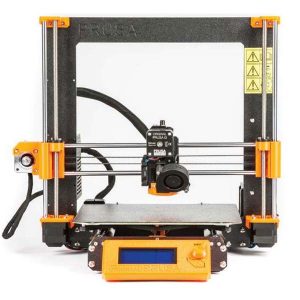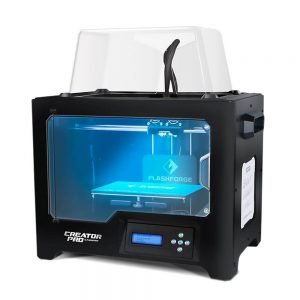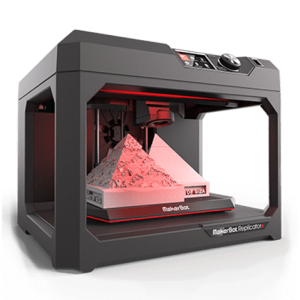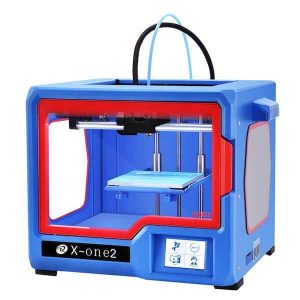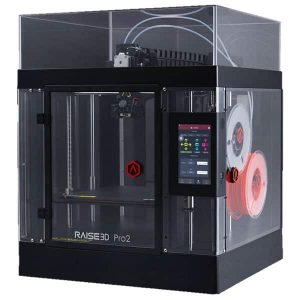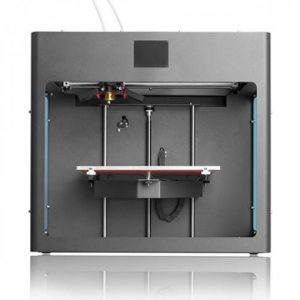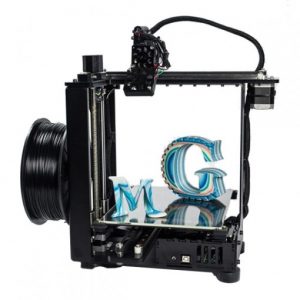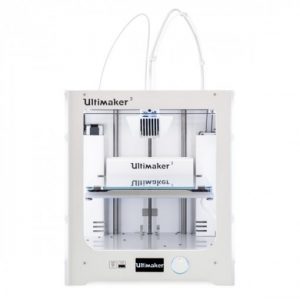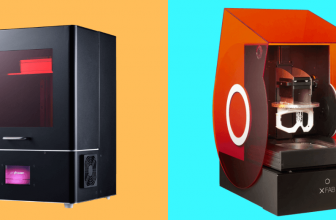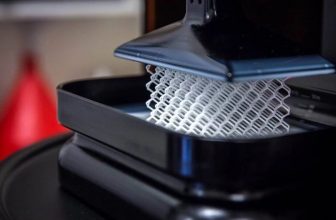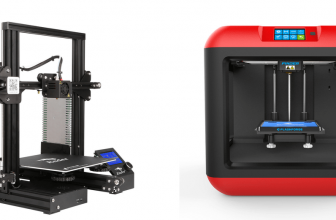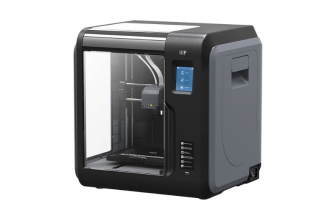The greatest 3D printers are the wave of the future, and it is nowhere. 3D printers are no longer a science fantasy concept. Whether you own a business that could profit from one or simply have a lot of money and want a new toy to play with, you will be glad to know that they are more affordable than ever.
There has never been a better moment to get one of the top 3D printers, considering the current and potential benefits they bring to the table.
You can use them to make whole items, spare components, or just make things for your house, workplace, or workshop. And, because 3D printing technology is accessible to almost everyone, you do not have to use one to your advantage.
Here are the top plug-and-play 3D printers to consider, whether you are just getting started or a seasoned pro. Our recommendations range in price, size, functionality, and use case, so no matter what you are searching for, you will find them here.
Keep in mind that the more expensive options are better suited for professionals, whereas the plug-and-play 3D printers are perfect for individuals who are just getting started.
What Kinds of Things Can You Print with a 3D Printer?
The following are some examples of common applications:
- Replacement parts or custom components are produced quickly.
- Making solid models for architecture, design, commercial presentations, or just for fun
- Customized medical equipment, such as prosthetic limb components or customized instruments and equipment
Comparison Chart
| Name | Link | Nomination | Rating |
|---|---|---|---|
| Creality CR-5 Pro | Versatility | 9.5 | |
| Original Prusa i3 MK3S | High quality Printing | 9.2 | |
| Flashforge Creator Pro | User Friendly | 8.7 | |
| MakerBot Replicator Plus | Speed | 9.8 | |
| Qidi Tech X-One 2 | Inexpensive | 9 | |
| Raise3D Pro2 | Reliability | 9.5 | |
| Craftbot plus | High Precision | 9.3 | |
| Tiertime UP Mini 2 ES | Efficiency | 8.5 | |
| MakerGear M2 | High Accuracy | 8.7 | |
| Ultimaker 3 | Powerful Printing Capability | 8.8 |
List of Best Plug And Play 3D Printers
Creality CR-5 Pro
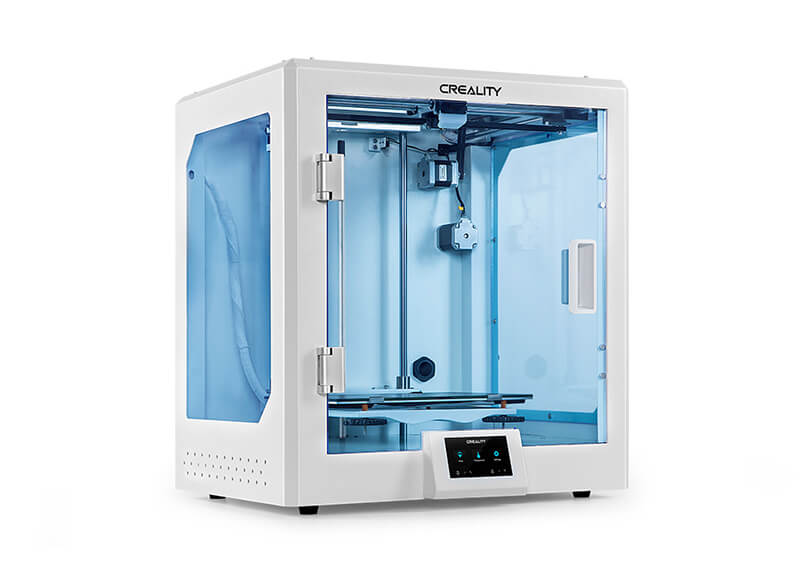
The Creality CR-5 Pro is an all-metal, semi-enclosed FDM 3D Plug and Play 3D printer. The machine is sent fully assembled, eliminating any play that could have resulted from incorrect self-assembly.
Because of its futuristic and attractive design, this 3D printer stands out amid the rest of Creality’s offerings. It’s a good-sized computer with a sleek ivory frame that’ll look great on any desk.
Uses:
- This simple gadget can be used for reverse engineering, rapid prototyping, and continuous quantity production of props, one-of-a-kind household goods, cookie cutters, tabletop miniatures, and more.
- It has a huge print area of 300 x 225 x 380 mm (11.8 x 8.9 x 15 in.)
- The printer allows you to produce dimensionally precise models with a clean surface finish at a minimum layer height of 100 microns.
- Aside from that, there are a few key features for a simplified, stress-free 3D printing experience, such as resume printing and a filament run-out sensor.
- The Creality CR-5 Pro comes with a high-end motherboard that has five TMC2208 ultra-silent drivers for a quiet printing experience.
- For simple standalone operation, you can use the printer’s 4.3-inch touchscreen, which has a clean UI and crystal-clear rationale behind menu options.
- You may also use a USB cable to connect the printer to a computer and control it remotely.
- Pre-assembled
- The design is sleek and contemporary.
- No noise
- A more powerful cooling fan
- The touchscreen of 4.3 inches
- Carborundum glass print bed of the highest quality
- Lights made by LEDs
- Filament runout sensor
- Printing can be resumed
- Automatic bed leveling isn’t available
- The body is semi-enclosed, but you can acquire the top cover to increase the selection of materials available
- The use of a touch screen can be problematic
- There is no access to Wi-Fi or Ethernet
Original Prusa i3 MK3S
|
Original Prusa i3 MK3S’s creators have created a range of printers aimed at different types of consumers due to the large number of innovations this machine has provided over time.
The printing series deserves praise for its outstanding printing outcomes. Are you new to the game? If you answered yes, don’t worry; this machine comes with secure packaging.
Uses:
- This Plug and Play comes with two slicer software programs: Prusa control for beginners and Prusa edition for intermediates.
- The E3 V6 hot end adds to the machine’s reliability by allowing it to handle higher temperatures.
- Its magnetic bed is not removable, yet it does not make it difficult to pop up objects. You can easily remove the thing once it has cooled down.
- Bond tech drive ensures a constant flow of filaments.
- All you have to do is select the filament type and load it into the printer; the sensors will handle the rest. An automatic filament feeder feeds the material into the machine.
- You may easily keep the printer in your room because it operates quietly.
- If you lose power in the middle of the procedure, your work will be saved and resumed where it left off.
- In the event of a power outage, the printer resumes operation from where it left off.
- One of the noticeable qualities of this equipment is the ability to print layer heights ranging from 50 microns to 300 microns.
- The print quality is unmatched.
- Budget-friendly.
- An automatic filament feeder is available.
- A heated print bed is used.
- A big number of people can help you use this super friendly machine.
- It does not have a detachable print bed.
- The print bed cannot be removed.
- It is not a good idea to work with an open frame at home with children.
FlashForge Creator Pro
|
Flashforge, which is made by one of China’s most well-known manufacturers and filaments, has wowed many users. This Plug and Play printer is a combination of affordability and technology that sets it apart from other low-cost printers.
One of the most notable features of Flashforge Creator Pro is the ability to create a large model by printing individual sections and then putting them together.
Uses:
- The dual extruder’s distinctive feature is that the nozzles can move independently on the x-axis from one another.
- To print with two distinct materials, two different nozzles can be used.
- Its enclosed design features two doors, one of which can be removed.
- Its pre-assembled parts are great for beginners and makers who don’t want to spend time putting the machine together.
- The metal frames that provide excellent stability to the printing technology have enhanced the print speed by up to 60%.
- Because time is money, its pre-assembled delivery will help you save it.
- As a result, the print quality is acceptable.
- Dual extruders.
- This printer is available for a reasonable price, ranging from $600-$1000.
- Another useful feature of this printer is the heated bed.
- There is no auto-calibration on the printer.
- It makes a lot of noise.
MakerBot Replicator Plus
|
MakerBot Replicator Plus is a quiet Plug and Play 3D printer with a slew of additional innovative features that make it one of the most formidable competitors among 3D printers in its class.
Uses:
- The firm has stated unequivocally that the new edition is supposed to be 30 percent faster than the previous one.
- For an additional fee, MakerBot offers a smart extruder that is designed to use PLA with a 1.75mm diameter.
- MakerBot’s print quality is adequate and superior to that of most professional 3D printers.
- The printer produces good print quality and fine details.
- The USB port allows you to operate this machine without a desktop computer.
- The 3D printer has a construction volume of 6.5 x 11.6 x 7.6 inches for its users.
- It’s simple to set up with the help of the mobile app’s instructions
- Wi-Fi access is provided
- Print speed is excellent
- In comparison to its predecessor, it has a larger build volume
- There are concerns with the USB port’s connectivity.
- Limitation on the use of third-party filaments
- It’s unsafe to use around kids and beginners because of the open design
Qidi Tech X-One 2
|
QIDI Technology is a Chinese company known for creating and marketing a variety of low-cost, high-capacity 3D printing devices. QIDI 3D printers are changing 3D printing since they are built for both personal and semi-professional use.
The QIDI X-one2 is an improved version of the first X-one. Like its predecessor, this plug-and-play printer comes fully assembled and ready to print right out of the box.
Because of its large enclosed structure, it is stable, safe, and quiet. It is a low-cost printer with a set of quality-of-life features that other 3D printers on the market lack.
Uses:
- It contains a 3.5-inch touch screen that may be utilized for a number of functions. This touchscreen may be used to control the printing process as well as the temperature of the bed.
- During the printing process, the X-One 2’s removable panel-shaped covers ensure temperature stability. Moving parts are also protected from dust and other pollutants.
- The Qidi Tech X-One 2 is a plug-and-play 3D printer
- On all sides, this 3D printer is well protected. Despite the lack of a top cover, this is a good thing because not all materials are resistant to temperature changes.
- The Qidi Tech X-One 2 includes a PEI suction cup printing bed made of aluminum alloy.
- The printer has a USB connector and an SD card slot on the back for connecting to the X-One 2.
- The Qidi Tech X-One 2 is a Fused Deposition Modeling printer with a build volume of 145 mm * 145 mm * 145 mm
- It offers exceptional customer service.
- This 3D printer’s aluminum frame is well made.
- The X-One 2 is delivered completely assembled, making setup a pleasure.
- The print quality of parts and working prototypes is exceptional.
- On the printer, there is a touchscreen interface.
- It has a print bed that can be readily leveled.
- There is an odd pause and resume function in this game.
- The Qidi Tech X-One 2 is compatible with third-party slicers.
- The printer’s build size is limited.
- There are adhesion issues with the printer’s stock build plate.
- The printer’s documentation is highly ambiguous in certain areas.
- It is tough to load the Qidi Tech X-One 2 filament.
Raise3D Pro2
|
Raise3D is an award-winning brand that, while not defying the 3D printing industry’s general design trend, has upgraded its equipment enough to catch your eye. The Pro2 is a desktop plug-and-play 3D printer with a big print area designed for professionals.
Uses:
- The Raise3D Pro2 3D printer’s two gear-powered extruders have been completely overhauled.
- The 3D printer comes with a V2 hot end. This nozzle head will reach temperatures of around 300° C.
- It is no surprise that the 3D printer’s print bed is magnetically swappable. Makers can change the build plate as needed without generating any problems with the device.
- This 3D Printer is capable of a wide range of tasks, from small details to big designs.
- One of the most crucial components that protect user safety is the HEPA filter. The filter is capable of removing more than 90% of dust and pollutants from the system, ensuring the makers’ safety.
- This printer can print heat-sensitive materials like ABS and HIPS.
- The Pro 2 has a reliable and strong frame.
- Even with a 0.2mm nozzle, the printer can achieve 10-micron layer resolution.
- This 3D printer is pre-calibrated and comes with two print heads.
- The touchscreen control interface is rare for FDM 3D printers in this price range.
- The program that is used to utilize this printer has a few difficult settings.
- The Pro 2’s app has been criticized for being difficult to use. This is especially true when it comes to temperature controls.
Craftbot Plus
|
This is one of the greatest plug-and-play 3D printers. It’s quite simple to use. You’ll be able to open the package and start printing your first print in minutes.
Whether you’re a novice or an expert, the features of CraftBot PLUS will allow your creativity to flourish. It has the same effect on everyone!
Uses:
- Its plug-and-play design includes an inbuilt LCD touchscreen for monitoring and controlling prints.
- It also works with meta controls to provide the greatest 3D printing experience possible.
- The build volume of the CraftBot PLUS is outstanding at 250 x 200 x 200, which is very usual for a machine of this size.
- It confidently employs the entire build volume. The build plate itself distributes heat evenly. So that printing materials such as ABS do not pose a problem for CraftBot PLUS.
- The nozzles and bed calibration are adjusted manually. Three thumbscrews are needed to level the bed in order to achieve a perfect print. This simple yet efficient leveling technique is maintained by repeatedly removing and replacing the build plate, ensuring that it will remain rock solid for many prints.
- It has an aluminum heated build plate as well as a removable plate. The build plate can be removed, cleaned, and reinstalled.
- It can print at low resolutions of up to 100 microns, with any number you choose in the slicing software.
- G Code can be loaded with a USB drive or by using their software to link it to your computer.
- The system can be controlled using either USB-connected software or a vivid responsive touch screen with logical iconography.
- It’s a fantastic machine for industries, print shops, and education, especially at its price point. CraftBot PLUS is usually a good option if you want a rock-solid printer, and it ranks high on the list of top budget 3D printers.
- Exceptionally reliable
- Handling is simple
- The most versatile user interface
- Scratch-resistant
- A little too loud and hefty
- While printing is in progress, it is not possible to make changes to the print parameters
Tiertime UP Mini 2 ES
|
This printer uses Melted Extrusion Modeling technology. It can be a treasure for both makers and novices. It has a limited number of settings yet produces high-quality prints and can deal with a variety of materials to achieve better results.
Functional prototypes can be made out of ABS and PLA. This Plug and Play printer is highly suggested for beginners who want to join in on the fun because it is a complete plug-and-play 3D printer.
Uses:
- This printer is totally enclosed, with only one front door and one back door, which helps to keep the environment at a comfortable temperature.
- Working with ABS has certain health risks because of the toxic vapors it produces, but if you use the Tiertime UP Mini 2 ES, you won’t need to operate in a ventilated area because it’s BUILT-IN HEPA filter eliminates 90% of the harmful fumes.
- The HEPA filter is supplemented by a carbon filter, which improves the printer’s reliability.
- It has a build volume of 120 mm x 120 mm x 120 mm.
- A printer with a removable print bed is more user-friendly, and this one does precisely that for under $1000.
- Two different filaments at two different timings can be utilized in the same print.
- One of the most important requirements is automated calibration and this printer offers that.
- This machine stands out due to its automatic material detection.
- It is easily affordable.
- HEPA and a Carbon Filter are included with this machine.
- The printing quality has been improved even more.
- Standard and flexible materials require different build plates.
- Your task will be tougher if you have a limited build space.
- There isn’t any advanced software available.
MakerGear M2
|
The MakerGear M2 is similar to the Upbox in that it has a metal frame, a heated print bed (up to 110°C), and an 8 x 8 x 10 in the build area. It does not, however, come with an enclosed casing or software.
Although Simplify3D is recommended, you can use whatever modeling platform you like. Aside from the specs listed above, the M2 has 4-point leveling, a single/dual extruder, and is made of aluminum.
Uses:
- MakerGear is easy to use.
- Connect via USB (or SD card), perform initial setup, and upload your 3D model—the M2 is arguably the only 3D printer on this list that comes close to being plug-and-play or set-and-forget.
- It comes with a copy of Slic3r and Pronterface, two open-source software that is both free.
- Extra extruders, filament spools, and LCD screens may all be added, and spare components are also available on the Makergear website.
- With a base temperature of 110°C, this printer is capable of printing even materials that require a lot of heat.
- Affordable
- Easy to uses
- Loud
Ultimaker 3
|
This computer, unlike its predecessor, has aimed to exceed all of its consumers’ expectations. After a series of promising devices for 3D printing communities, Ultimaker has unveiled Ultimaker 3.
With a dual extruder and a bevy of other capabilities to allow users to push their imagination even further, this is certainly a next-generation rig. In this price range, the Ultimaker 3 is the best FDM 3D printer, with a variety of color printing possibilities.
Uses:
- This plug-and-play 3D printer supports dual extrusion. This implies that two colors can be printed simultaneously. As a result, making multicolor models with this 3D printer is quick and easy.
- PVA material that is compatible with the unit is available. This means the support structure can be printed using PVA, which is a water-soluble substance.
- The 3D printer comes with a detachable print core. For consumers, this makes content shifting easier and more convenient.
- WIFI connectivity is available.
- Automatic Bed Leveling is included with this FDM printer.
- The printer generates printouts of excellent quality.
- The Ultimaker 3 is simple to operate.
- The printer has Wi-Fi, LAN, and USB interfaces for networking.
- Customers have criticized the return time of the printer.
Buying Guide
Enclosed Space
To avoid layer separation, printing materials such as ULTEM 9085, ABS, PC, and others require an enclosed chamber.
The heated bed maintains a steady temperature inside the machine, and some machines include additional heaters to keep the printing surface warm.
Volume and Speed
If speed is vital to you, choose a printer with a nice print finish. Models created with 3D printers, on the other hand, require post-processing. If you want to print multiple components at once, use a printer with a big build volume.
Reliability
What if the 3D printer continues to work for a few days before discontinuing doing so? What happens if your 3D printer breaks down now and then?
It’s also untrustworthy if the results aren’t consistent. So, keep a lookout for it and join online communities to learn more about it.
Nozzle for High-Temperature Applications
The type of 3D Printing Materials that a 3D Printer can print is determined by the temperature of the Hotend Nozzle. The E3Dv6 hotend can reach 380 degrees Celsius, but the clone hotend can only reach 260 degrees Celsius.
In 3D printing, the nozzle temperature is the most important factor. The clone Hotends come with bulb sensors, which are a little more difficult to install and have a propensity to fall out of the mounting hole, causing temperature readings to fluctuate.
Auto-Leveling Feature
This feature warns the machine if the bed is slanted and needs to be adjusted in order to achieve a smooth initial layer. It also ensures that the build plate does not collide with the nozzle.
Cartesian 3D printers require auto bed leveling due to the higher frequency of calibration. Delta Mechanism 3D Printing Machines, on the other hand, require less frequent calibration.
Connectivity
This function isn’t necessary if you only plan to buy one or two machines, but it will come in handy if you plan to start a farm. You’ll save time looking for files in folders and be able to handle a lot more PCs with just one.
Frequently Asked Questions (FAQs)
What Is The History Of 3D Printing Technology?
The concept of 3D printing was initially proposed in the mid-1970s, and it became a commercial product the following decade. During the 1990s, more breakthroughs were made.
Is It Expensive To Run 3D Printers?
This question does not have a clear answer. The price will vary depending on the model you purchase and how often you use it. However, the following elements may be useful to consider:
- The Cost Of Purchasing A Printer
There are a variety of models available, ranging from basic budget printers to high-end, fully-featured machines.
You should always choose the model that best fits your budget, but you should also think about the cost of spare components and replacement 3D printer parts in case you run into technical issues, such as extruder jams. Another potential future cost to consider is component updates.
- Costs of Filament
The price of the filament varies depending on its quality and the size of the objects you want to make. A one-kilogram rolls of filament each month is likely to be required by a frequently used printer. By reducing filament waste, costs can be cut.
- Electricity
3D printers typically use around the same amount of electricity as a residential fridge – about £60 per year. If left unattended for an extended period of time, some models will go to idle mode, which will consume electricity.
It’s impossible to give a precise amount, but a good estimate for the average annual operating costs of a mid-range 3D printer is roughly £300+.
How Much Does a 3D Printer Cost?
Do 3D Printers Use a Lot of Electricity
3D Printer Material Cost: Ultimate Price Comparison
Is It True That 3D Printers Just Use Plastic?
No. The most common fabrication material is plastic; however, some higher-end versions can also mold resins, ceramics, and even metal.
Do 3D Printers Require Ventilation?
Standard 3D printers that use PLA filament have been found to generate a mist of ultrafine particles, volatile chemical compounds, and a material called styrene, which is a component of plastic. Although no definite link has been established between inhaling this mist and illness, ventilation is recommended whenever possible.
Conclusion
There are numerous 3D printers on the market that can handle nearly every project requirement—some with high resolutions, some capable of using practically any material, and yet others with a variety of connection choices and simple software programs.
The number of plug-and-play or “set it and forget it” solutions are getting shorter. They can still be found and at practically any price point. However, there should be “standards” that apply to all of them, making them as simple to operate as a PC-connected laser printer. Onward to a world when every garage has a 3D printer!

